
Welcome from our CEO
Welcome to As You Sow’s spring newsletter! In this issue, hear how we fought ExxonMobil at the SEC and persuaded McDonald’s to be more environmentally friendly. Join us in looking at the resolutions on the horizon this proxy season and take a look back at our 2011 annual report. We also weigh in on new coal and fracking regulations. And, last but not least, we profile our new reports on 2012 shareholder resolutions, best practices in the solar industry, and the cotton supply chain in Uzbekistan.
Thank you for your support.
Best,


Andrew Behar, CEO
As You Sow’s 2012 Proxy Season
Shareholders at Fortune 500 companies will vote on 10 As You Sow resolutions in 2012, which address issues ranging from the financial impacts of coal, to community impacts of fracking, to the environmental impact of post-consumer waste.
|
Coal-fired utilities Duke Energy, Ameren, and FirstEnergy all face our request for a report on their plans to reduce exposure to coal-related costs and risks, including environmental compliance costs, volatile commodity prices, and the increasing risks of new plant construction.
|
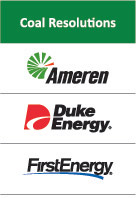 |
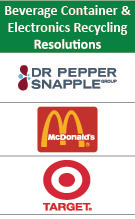 |
Dr Pepper Snapple Group shareholders will urge the company to adopt a recycling strategy in line with competitors Coca-Cola and PepsiCo. Our resolution with McDonald’s was withdrawn when the company agreed to a pilot phase-out of polystyrene coffee cups at 2,000 west-coast stores.
Target investors will again have the opportunity to support our request for in-store electronics recycling programs. The 2011 resolution garnered extraordinary 30.8% support, yet the company made no move to implement a take-back program.
|
|
In the end of May, energy giants ExxonMobil, Chevron, and Ultra Petroleum will hear shareholders’ concern about the financial risks they face from the negative impact fracking has on local communities.
After the SEC’s much publicized rejection of Exxon’s attempt to bar shareholders from voting on this issue and the record-breaking shareholder votes last year, these are important resolutions to watch.
|
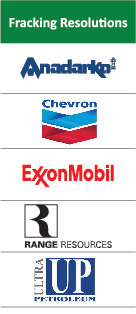 |
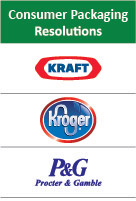 |
We withdrew a resolution with Colgate-Palmolive for a commitment on post-consumer packaging waste goals.
Investors at Kraft, Kroger, and Procter & Gamble will vote on resolutions asking them to assess taking responsibility for recycling post-consumer packaging later in the season.
|
|
We negotiated a withdrawal of our first resolution with grocer Safeway after company management agreed to increase its transparency on bisphenol A (BPA).
Our request that Coca-Cola address the significant reputational risks of continued use of BPA in cans was omitted by the SEC. We will, however, start to pressure major banks to remove the chemical from their ATM receipt paper.
|
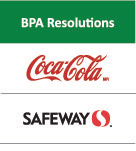 |
Overall, 2012 promises to be a year in which shareholders exert increased pressure on major corporations to increase their accountability and transparency on environmental issues.
ExxonMobil Challenge to Fracking Vote Defeated
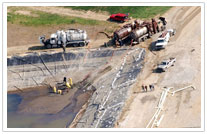
Health care professionals found worsening health in communities near drilling sites in Texas, Wyoming, and Louisiana.
Just eight weeks before ExxonMobil’s annual shareholder meeting, the Securities and Exchange Commission (SEC) sided with As You Sow in their battle to address concerns about the energy giant’s hydraulic fracturing (fracking) operations. The shareholder resolution asks ExxonMobil to report on the financial risks to shareholders from the regulatory and community impacts associated with fracking. On March 28th the SEC rejected ExxonMobil’s request to omit the resolution, clearing the path for a vote at the company’s annual shareholder meeting on May 30th.
ExxonMobil argued to the SEC that it had substantially implemented the shareholder requests. As You Sow countered with a well-researched brief revealing a large data gap between information requested and what was disclosed. For example, ExxonMobil asserted that it had no hydraulic fracturing-related environmental violations. As You Sow uncovered 156 notices of violations related to fracking operations issued to ExxonMobil or its recently acquired subsidiary, XTO, in Pennsylvania alone between 2010 and 2011.
Over 15 companies have received fracking resolutions which were supported by 40% of shareholders on average, fully double the norm. Many have been withdrawn in exchange for company commitments.
ExxonMobil is an industry laggard and is one of only two companies to receive a fracking resolution for three consecutive years.
Source: FrackTracker.org
Coal and Fracking Regulations Will Have Limited Impact
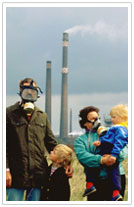
Coal-based energy generation causes 21,000 deaths, 24,000 hospitalizations, and 280,000 severe asthma attacks every year in the U.S.
After years of delays, the Environmental Protection Agency (EPA) has proposed limits on greenhouse gas (GHG) emissions from new power plants, formally called the New Source Performance Standard (NSPS). The rule caps carbon dioxide emissions at 1,000 pounds per megawatt of energy produced. This will likely bar the construction of new coal plants, as the carbon capture and sequestration technology required to comply with those limits is unproven and uneconomical.
However, the new rule excludes existing coal plants or any plants that receive approval in the next year. So while the rule implicitly encourages the development of new natural gas plants, which meet the new criteria, overall GHG emissions will not be significantly impacted.
Hydraulic fracturing for natural gas, or “fracking,” has also been on the EPA’s agenda. In response to complaints about health problems caused by carcinogenic methane and benzene emissions, the agency drafted the first-ever air quality standard regulations for natural gas and oil drilling. It would require use of pollution control equipment during the three to 10 days when a fracked gas well is vented to transition from drilling to production.
Though this appears promising, the EPA made major concessions by delaying enforcement for two years and allowing drillers to burn off methane, which releases smog-forming nitrogen oxides. The rule also updated existing emissions rules for natural gas processing plants, storage tanks, and pipelines.
Despite these new proposed regulations, fossil fuel plants will continue pumping out toxic air pollutants that endanger our health and wreak havoc on the environment. And until 2015, when the new fracking rule comes into effect, air emissions will proceed unabated and result in increased flaring.
As You Sow will continue to advocate for protecting our communities and the environment from the pollution inherent in coal- and fracking-based energy generation.
Source: Herve Donnezan / Age Fotostock
McDonald’s to Pilot Elimination of Styrofoam Cups

Senior Program Director Conrad MacKerron tries the new McDonald’s paper coffee cup.
Although fast-food giant McDonald’s stopped using the controversial foam for its food packaging decades ago, it took a shareholder resolution filed by As You Sow to spur them to pilot a phase-out of polystyrene coffee cups.
The 2011 shareholder resolution asked the company to re-evaluate the use of foam cups and to develop a recycling policy similar to Starbucks’. The proposal was supported by nearly 30% of shareholders, an above average level for an environmental proposal and the highest vote to date for any As You Sow proposal on recycling.
Following this strong showing of investor concern, the company responded by launching a pilot program that replaces polystyrene with a double-walled paper cup at approximately 2,000 (15%) of its U.S. restaurants.
Polystyrene is controversial from several health and environmental angles. Styrene is a known carcinogen according to the International Agency for Research on Cancer and the Environmental Protection Agency lists polystyrene cup recycling as “negligible.” As it is petroleum-based, polystyrene persists for hundreds of years after use.
It is also a significant factor in plastic ocean pollution. Carried through storm drains to the ocean, foam containers break down into small indigestible pellets which animals perceive as food, resulting in the death of birds and fish.
Faced with these concerns, McDonald’s stopped using foam-based “clamshell” food containers in 1990 and eliminated more than 300 million pounds of packaging, saving an estimated $6 million per year.
The Consumer Packaging initiative is part of the Waste program, which encourages companies that produce packaging to take responsibility by implementing extended producer responsibility policies. Building on our successful work with Coca-Cola, Starbucks, Nestlé Waters, and PepsiCo, we are pressing consumer packaging and electronics companies to use raw materials more efficiently to ultimately reduce waste.
As You Sow Reports on Best Practices in Solar
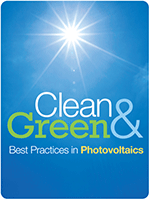
Much of the solar industry is being proactive in using best practices in photovoltaic manufacturing.
In March of 2012 As You Sow released Clean & Green: Best Practices in Photovoltaics, a new report that presents the processes of manufacturing photovoltaic panels in non-scientific language and highlights practices and policies companies use to mitigate the risks from hazardous compounds, reduce environmental impact, and responsibly manage their supply chains.
In writing the report, As You Sow Research Director and author Amy Galland, PhD surveyed over 100 solar manufacturers around the world to learn about their manufacturing processes.
Best practices were determined via consultation with scientists, engineers, academics, national laboratories, and industry consultants.
Our research found that solar companies are beating standards set for emissions, reducing water use, and are participating in voluntary international programs related to worker safety.
Several companies also are using safer materials, relying on renewable energy to power their processes, reducing waste, recovering materials for reuse, and improving relations with workers and communities throughout their supply chains. Thus, not only are they creating a product that produces electricity with zero emissions, they are also doing it in a responsible way.
Clean & Green: Best Practices in Photovoltaics is the first project in As You Sow’s new Cleantech initiative. As people realize that fossil fuel-based energy sources like coal and natural gas damage our health and the environment, this new initiative will highlight the most responsible paths along the inevitable transition to sustainable energy.
The Cleantech initiative grew out of As You Sow’s work in fossil-based energy and electricity generating sources and the issues inherent in the product development and manufacturing of electronic products.
Proxy Preview 2012 Helps Investors Vote Their Values
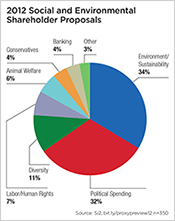 Before the November election, millions of votes will be cast at annual shareholder meetings across the country to determine corporate policies on critical issues.
Before the November election, millions of votes will be cast at annual shareholder meetings across the country to determine corporate policies on critical issues.
In anticipation of these votes, Proxy Preview 2012, our eighth annual guide to social and environmental shareholder resolutions, was released to help investors make informed choices on aligning their investments with their values.
Nearly a third of the socially responsible shareholder resolutions filed this year address corporate political spending, lobbying, and the influence of corporate money on the government. Every year, these resolutions are a snapshot in time and this years’ reflect the national debate on growing economic inequality and the concentration of corporate power, sparked by the Citizens United decision and the Occupy Wall Street movement.
Proxy Preview 2012 discusses these new and controversial resolutions and also presents expert opinions from over 35 advocates on diverse issues including the environment—ranging from climate change and sustainability to coal and fracking—and social issues including political spending, lobbying, animal welfare, human rights, banking practices, sexual orientation discrimination, and worker safety.
As You Sow is proud to collaborate with the Sustainable Investments Institute (Si2) and Proxy Impact to produce this resource for a growing number of value-driven investors.
Visit proxypreview.org to download the free report and watch a webinar featuring a discussion of the hottest issues on this year’s proxy ballots by As You Sow CEO Andrew Behar, Heidi Welsh of Si2, Michael Passoff of Proxy Impact, and Tim Smith of Walden Asset Management.
Forced Child Labor: From the Fields to Your Closet
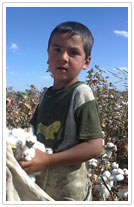
This cotton can end up in clothing sold in the United States.
How does cotton picked by Uzbek children end up in the products we use and wear every day?
From the Field: Travels of Uzbek Cotton Through the Value Chain, a new report from the Responsible Sourcing Network, a project of As You Sow, traces that journey to help brands and retailers eradicate Uzbek cotton produced with forced child labor from their supply chains.
Building on existing human rights reports about the cotton industry in Uzbekistan, From the Field digs into the Uzbek industries of cotton agriculture, ginning, processing, and shipping before it is exported. The report demystifies the value chain to give brands insight into the risks attached to this controversial cotton.
From the Field is the first in a series of reports designed to present the facts about Uzbek cotton to enable brands to eliminate forced child labor from their value chains.
Research for the report began in 2010 and culminated with RSN’s trip to Uzbekistan in the fall of 2011. It contains the most current available data and statistics on the Uzbek cotton industry and its exporting partners.
Responsible Sourcing Network will circulate the report among its coalition of over 80 international manufacturers and retailers of apparel and cotton goods. The information will also be presented in a series of webinars for corporate social responsibility, sourcing, and design professionals beginning in May of 2012.
Image: Uzbek-German Forum for Human Rights
2011 Annual Report
Thanks to the generous support of our donors and funders, As You Sow moved some of the world’s largest corporations on social and environmental issues in 2011. Here are highlights of our successes!
Energy
Coal
After a year-long study, we published the White Paper: Financial Risks of Investments in Coal and engaged key players in the investment community to examine their exposure to these risks from their coal holdings. Through shareholder proposals, we dialogued with major coal-fired utilities and pressed for reports assessing the specific financial risks from continued coal reliance. Shareholders at FirstEnergy, Duke Energy, and CMS Energy voted 31%, 8%, and 6% in favor our resolution. We also empowered students across the nation to challenge their university endowments to move their investments from coal and reinvest responsibly.
Fracking
A record-breaking 28%, 41%, and 42% of ExxonMobil, Chevron, and Ultra Petroleum investors voted to address the risks that fracking poses to our water, soil, and air quality, demonstrating that mainstream shareholders want more accountability from their companies on this issue.
Environmental Health
BPA
After receiving our resolution, Yum! Brands (KFC, Taco Bell, Pizza Hut) stopped using BPA-laden cash register receipts, along with Walmart, Safeway, and Whole Foods. Over a quarter of Coca-Cola investors supported our request to disclose the risks of using BPA in their cans.
Nanomaterials
We published a framework to help food companies evaluate the risks of nanomaterials in their food products and packaging. It was reviewed by leading companies, scientific organizations, and investor groups, and was well-received by the food industry and safety advocates.
Waste
Consumer Packaging
We filed the first resolutions on extended producer responsibility (EPR) with General Mills and Procter & Gamble; both committed to explore EPR policies. McDonald’s responded to our resolution by launching a pilot program eliminating polystyrene cups in 2,000 restaurants. Our third scorecard on the beverage industry found growing support for EPR programs.
Electronic Waste
Thirty percent of Target shareholders agreed with our resolution asking for in-store electronic waste recycling similar to Best Buy’s successful program.
Human Rights
Responsible Sourcing Network (RSN), a project of As You Sow, continued engaging the apparel and electronics industries on supply chain transparency.
Cotton
Gap Inc., Adidas, the Gucci Group, and over 60 other international brands and retailers signed RSN’s pledge to stop using cotton produced with child labor in Uzbekistan. That pressure culminated at New York Fashion Week, causing the cancelation of a fashion show by Gulnara Karimova, the daughter of the Uzbek President.
Minerals
RSN continued leading a multi-stakeholder group of investors, nonprofits, and manufacturers including Ford and HP. The coalition submitted recommendations to the SEC to promote the effective implementation of the conflict mineral provision of the Dodd-Frank Act.
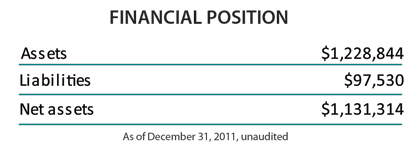
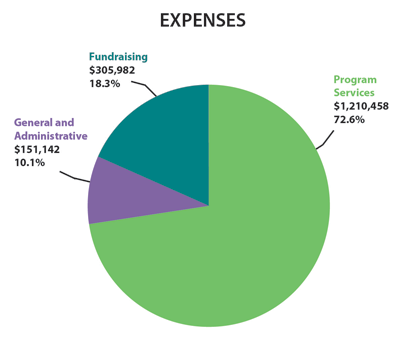
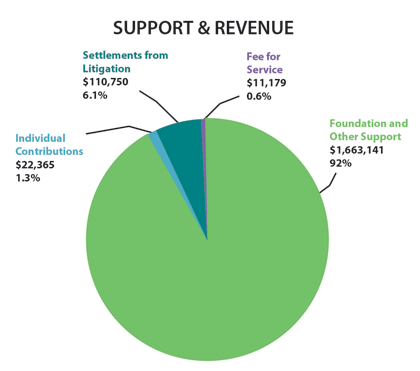
A “Fahn” Farewell
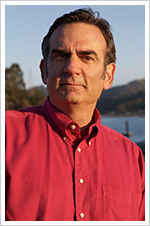
Sometime in the last century-1997 to be exact-I was offered a unique opportunity to take the helm of a small San Francisco-based nonprofit organization. As You Sow, with two part-time staff, had some big ideas and huge potential. I jumped at the chance to become Executive Director and lead an organization with lofty goals of corporate accountability, toxics reduction, shareholder advocacy, and environmental enforcement.
Now, 15 years later, I’m leaving my post, proud of As You Sow’s phenomenal growth, its myriad public interest accomplishments and as I ponder my next adventure, I’m proud to look back and consider some of the highlights of As You Sow’s work over the past 15 years…
- Confronting and exchanging ideas with Steve Jobs while presenting As You Sow’s shareholder resolution at Apple’s annual meeting. This resulted in a contentious but productive two hour face-to-face meeting with Jobs and four As You Sow staff that persuaded Apple to launch a game-changing e-waste and computer take-back and recycling program. They also began phasing out several toxic chemicals in their product lines.
- Convincing major utility companies such as IDACORP (aka Idaho Power and Light) to reduce their reliance on coal and move to incorporate more renewable energy into their power portfolio.
- Overseeing an aggressive environmental enforcement and litigation program that has achieved significant consumer safety and toxic reductions, including:
- Making millions of school kids safer by reducing or eliminating formaldehyde emissions from thousands of portable classrooms around California
- Educating consumers and especially pregnant women about the dangers of mercury in fresh swordfish, tuna, and other marine species by developing informative warning protocols at grocery stores and fish markets
- Reducing or eliminating lead exposure in children’s jewelry, herbal supplements, water valves, sports equipment and other consumer products Eliminating the use of known carcinogen perchloroethyline from hundreds of industrial and consumer dry cleaning businesses, especially in low income communities
- Eliminating DEHP and other carcinogenic phthalates from a wide array of vinyl consumer products, such as electronic earbuds and book bags
Proceeds from our enforcement settlements were donated to fund other nonprofits. The favorite part of my job involved reviewing grant applications and providing, over the past 20 years, more than $2.5 million dollars, to more than 110 fabulous nonprofit groups working on cutting edge of toxics prevention, awareness, remediation, clean-up, or environmental education.
I want to introduce Danielle Fugere, who will be filling my role as President and comes to As You Sow with decades of legal and advocacy experience. I am confident that As You Sow is in very capable hands, prepared to achieve even greater successes in the years to come. I am honored to join As You Sow’s Advisory Board and provide continuity and input for the As You Sow team.
My thanks to the As You Sow board, staff, funders, and grantees for all their years of support; my heart will always be filled with fondness for the work, legacy, and future. I’m sure I’ll continue to see everyone along the proverbial campaign trail. ONWARD!

Larry Fahn
Danielle Fugere Joins As You Sow
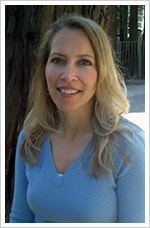 We are pleased to welcome Danielle Fugere to the As You Sow team! Taking over for Larry Fahn as President, Danielle will be responsible for strategic management of the Energy, Environmental Health, and Waste programs. She brings a wealth of experience in achieving broad and lasting change and in-depth knowledge of clean energy, conservation policy, toxic enforcement, and team building.
We are pleased to welcome Danielle Fugere to the As You Sow team! Taking over for Larry Fahn as President, Danielle will be responsible for strategic management of the Energy, Environmental Health, and Waste programs. She brings a wealth of experience in achieving broad and lasting change and in-depth knowledge of clean energy, conservation policy, toxic enforcement, and team building.
Danielle served most recently as Executive Director of the Environmental Law Foundation. Prior, she was Legal Director and Regional Program Director for national nonprofit Friends of the Earth, where she spearheaded innovative legal strategies to reduce global warming pollution and directed campaigns to reduce pollution and promote sustainable alternative energies and fuels.
Through her work, Danielle has been instrumental in securing compliance with environmental laws and industry conversions to environmentally sound technologies, including a settlement with the City and County of Los Angeles resulting in a $2.1 billion sewer system upgrade. Danielle was recognized with the WaterKeeper’s Environmental Achievement Award in 2000 for her outstanding achievements protecting California waters from pollution and compelling polluters to assume the costs of environmental degradation. She holds a JD from the University of California, Berkeley School of Law and a BA in Political Economics from the University of California, Berkeley.





















 Before the November election, millions of votes will be cast at annual shareholder meetings across the country to determine corporate policies on critical issues.
Before the November election, millions of votes will be cast at annual shareholder meetings across the country to determine corporate policies on critical issues.




 We are pleased to welcome Danielle Fugere to the As You Sow team! Taking over for Larry Fahn as President, Danielle will be responsible for strategic management of the Energy, Environmental Health, and Waste programs. She brings a wealth of experience in achieving broad and lasting change and in-depth knowledge of clean energy, conservation policy, toxic enforcement, and team building.
We are pleased to welcome Danielle Fugere to the As You Sow team! Taking over for Larry Fahn as President, Danielle will be responsible for strategic management of the Energy, Environmental Health, and Waste programs. She brings a wealth of experience in achieving broad and lasting change and in-depth knowledge of clean energy, conservation policy, toxic enforcement, and team building.
